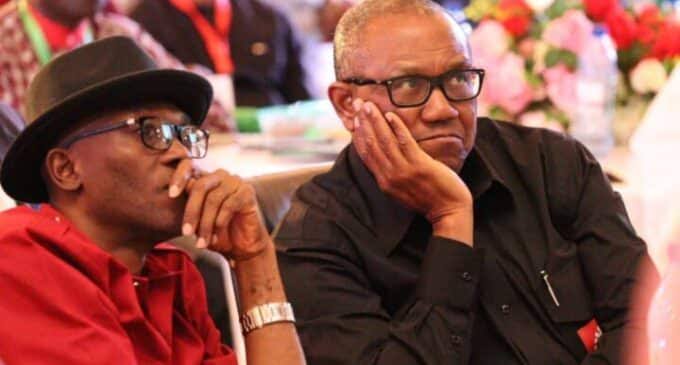Paragraph 1: The Labour Party (LP) in Nigeria is embroiled in a deep leadership crisis, marked by power struggles and accusations of anti-party activities. The conflict escalated dramatically after the Julius Abure-led National Executive Committee (NEC) removed Hon. Afam Ogene as the LP Caucus Leader in the House of Representatives, citing his alleged involvement in activities detrimental to the party. This move followed a Supreme Court judgment that added fuel to the already simmering tensions within the party. The NEC also issued strong warnings to Peter Obi, the LP’s 2023 presidential candidate, and Alex Otti, the Governor of Abia State, threatening disciplinary action if they proceeded with a planned stakeholders’ engagement.
Paragraph 2: The roots of the conflict can be traced back to differing interpretations of the Supreme Court judgment. While Abure insisted the judgment affirmed his position and the party’s supremacy in internal matters, Obi and Otti appeared to interpret it differently, leading them to call for their own stakeholders’ meeting. This move was seen as a direct challenge to Abure’s authority and an attempt to consolidate their own support within the party. The separate meetings called by Abure and the Obi-Otti faction highlighted the deep divisions and lack of communication within the LP.
Paragraph 3: The NEC meeting chaired by Abure was held amidst a tense atmosphere, with a significant police presence and a gathering of individuals described as “suspected miscreants.” The meeting concluded with the announcement of Ogene’s removal and the appointment of Hon. Ben Eternabene as the new Caucus Leader. The grounds for Ogene’s removal included accusations of compromised leadership, a lack of cohesion among LP members in the House, and failure to adequately represent the party’s ideology. Ogene’s support for the Nenad Usman-led National Caretaker Committee, formed in the wake of the Supreme Court ruling, further solidified his opposition to the Abure-led faction.
Paragraph 4: The NEC’s actions did not stop with Ogene’s removal. The committee also issued a stern warning to Obi and Otti against holding their planned stakeholders’ meeting, threatening disciplinary action, including potential suspension from the party, if they proceeded with activities perceived as undermining party unity. This action underscores the NEC’s determination to assert its authority and quell any dissent within the LP. Abure, in his address to the NEC, accused Obi and Otti of betrayal, further exacerbating the already fractured relationship between the factions.
Paragraph 5: Reactions to the NEC’s decisions were swift and critical. Prof. Theophilus Ndubuaku, Acting National Chairman of the Nigeria Labour Congress (NLC) Political Commission, described the actions as bizarre and indicative of a deeper malaise within the party. He questioned Abure’s continued presence at the party secretariat, given the Supreme Court ruling, and suggested that Abure was fighting not just individuals within the LP but also the highest court in the land. Ndubuaku expressed hope that the release of the Certified True Copy (CTC) of the judgment would clarify the situation and bring some resolution to the ongoing conflict.
Paragraph 6: Tony Akeni, spokesperson for the Usman-led caretaker committee, also expressed dismay at Ogene’s removal and the appointment of Etanabene. He warned Abure and his loyalists of potential repercussions, suggesting that the tables could turn and that Abure might regret his actions. Akeni characterized Abure’s leadership as an “empire of ashes” and predicted further turmoil within the party if Abure continued to act in a manner perceived as authoritarian and dismissive of other key figures like Obi and Otti. The situation remains highly volatile, with the future of the Labour Party hanging in the balance as the various factions jostle for control and interpret the Supreme Court ruling to their advantage.














